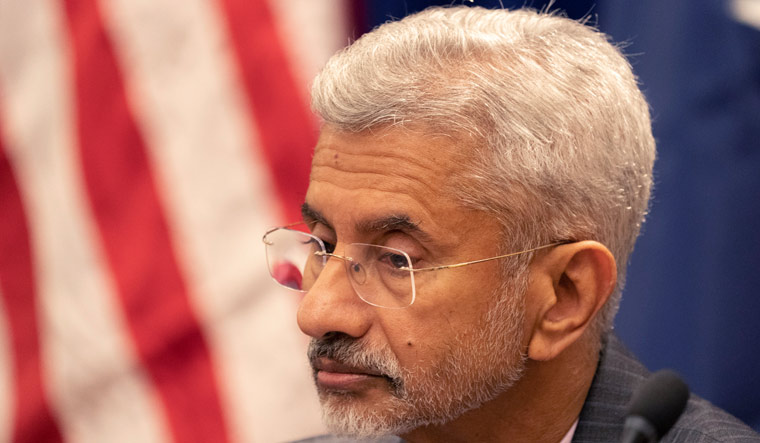The Quad nations of India, Japan, Australia and the US, on Friday, signed the guidelines to operationalise the Humanitarian Assistance and Disaster Relief Partnership for the Indo-Pacific announced by their leaders in May this year.
External Affairs Minister S Jaishankar, US Secretary of State Antony Blinken, Japanese Foreign Minister Yoshimasa Hayashi and Australian Penny Wong met in New York for the Quad Ministerial meeting on the margins of the high-level 77th session of the UN General Assembly.
Ahead of their meeting, the ministers signed the guidelines to operationalise the Quad Humanitarian Assistance and Disaster Relief Partnership for the Indo-Pacific announced by Quad leaders in May 2022. The guidelines will allow the four nations to cooperate and coordinate more on, for example, climate disaster responses.
In his opening remarks, Jaishankar said the meeting was particularly timely because the world is going through a very difficult period, asserting that with the global repercussions of the Ukraine conflict, we are seeing climate events and emergencies on an unprecedented scale.
He said given the turbulent times, it's particularly important that the Quad goes further in the constructive agenda that they have set for themselves and that the four nations work together in delivering the public goods.
He added that the HADR partnership, which was discussed and finalised in Tokyo, is "extremely timely."
Jaishankar said there are other initiatives in the making, some little further in the pipeline like the STEM fellowship and they are working on the economic framework as well as the maritime domain awareness.
He said the meeting is also an opportunity for the four nations together to discuss how to strengthen the UN-led multilateral system.
In his remarks, Blinken said that the meeting on the margins of UNGA is evidence that the Quad is strong and getting stronger, strengthening our multilateral cooperation.
He said the members of the grouping know well the significant challenges "that we face as well as the opportunities that are before us, demand more than ever that we work together.”
"No one of us alone can do what is necessary to meet these challenges and seize these opportunities. And that's an inspiration behind the Quad," Blinken said, adding that this is the first time that the Quad foreign ministers have gotten together at the United Nations General Assembly.
"So, my hope is that this will become a regular feature of these meetings," he said.
He said the Humanitarian Assistance and Disaster Relief Guidelines lay the groundwork for the nations to cooperate and coordinate more on, for example, climate disaster responses.
"We are looking forward to continuing to explore the many ways that the Quad enables us to deepen our cooperation. Our leaders have set out a very significant agenda for us when they met. We're following through on a lot of that work," he said.
Wong said Australia is committed to a free and open Indo-Pacific inclusive and resilient and to a Quad that is a force for good and which is committed to bringing tangible benefits to the region and ensuring a region that is peaceful, stable, prosperous and in which sovereignty is respected, where countries are free to make their own choices.
"None of us in this room want to see a region in which countries are not able to make those sovereign choices, where any one country or any one perspective dominates. We do know our region is being reshaped, economically and strategically, the four nations will work together to better navigate this period of change together, Wong said.
Hayashi said today the world is witnessing direct attempts to unilaterally change the status quo. The free and open international order based on the rule of law is under threat.
"So, it's extremely significant for us to demonstrate together to the international community our firm commitment."
In 2017, Japan, India, Australia and the United States. given shape to the long-pending proposal of setting up the "Quad" or the Quadrilateral coalition to counter China's aggressive behaviour in the Indo-Pacific region.





